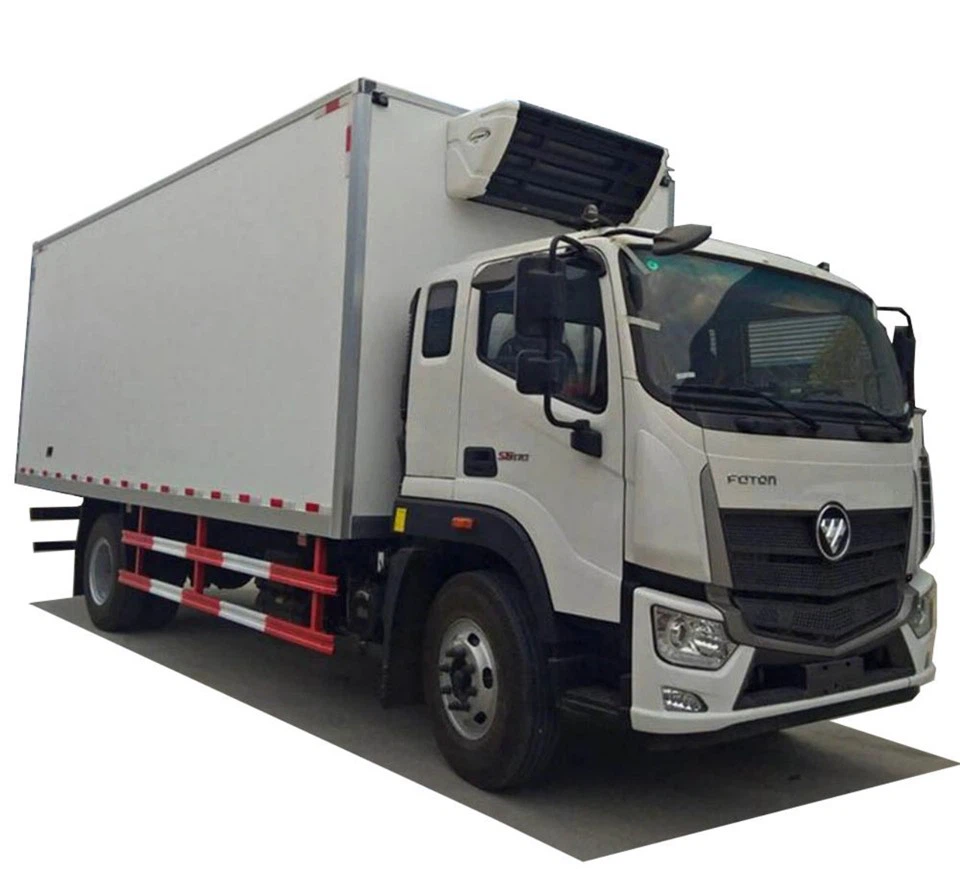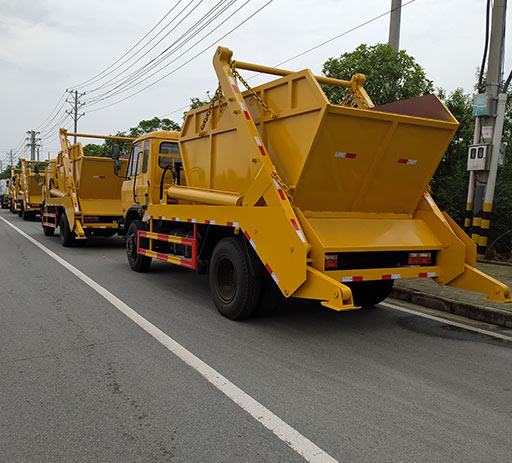Understanding Electric Truck Weight: A Comprehensive Guide

The transition to electric vehicles has sparked interest in various segments, one of the most significant being electric trucks. As businesses and consumers alike shift towards sustainable transportation, understanding the implications of electric truck weight becomes crucial. This article delves deep into everything you need to know about electric truck weight, its implications for performance, range, and operational costs.
Table of Contents
- Introduction to Electric Truck Weight
- Understanding Electric Truck Weight
- Impact of Weight on Performance
- Weight Distribution in Electric Trucks
- Regulatory Standards and Weight Limits
- Battery Weight Considerations
- Comparison of Electric Truck Weights
- Future Trends in Electric Truck Weight
- Advancements in Battery Technology and Weight Reduction
- Frequently Asked Questions
Introduction to Electric Truck Weight
Electric trucks are becoming a prominent choice for both personal and commercial transportation. The prevailing question among potential users often revolves around their weight and how it impacts various aspects of performance and usability. Understanding electric truck weight not only helps consumers make informed purchasing decisions but also aids manufacturers in designing more efficient, robust vehicles. In this article, we discuss the various aspects of electric truck weight, how it compares to traditional trucks, and what the future holds for electric truck design.
Understanding Electric Truck Weight
Electric truck weight refers to the total weight of the vehicle, including its chassis, battery, electric motors, and other components. Generally, electric trucks are heavier than their fossil fuel counterparts. The increased weight of electric trucks primarily comes from their batteries, which store the energy required for the vehicle’s operation. Understanding this weight is vital for several reasons, such as compliance with road regulations, safety, and efficiency.
Types of Electric Trucks
Electric trucks come in various configurations, each affecting their overall weight. Here are some common types:
- Battery Electric Trucks (BETs): These trucks use a battery as their only power source. Examples include the Tesla Semi and the Rivian R1T.
- Plug-In Hybrid Electric Trucks (PHETs): These trucks combine traditional engines with electric motors. An example is the Ford F-150 PowerBoost Hybrid.
- Fuel Cell Electric Trucks (FCETs): These trucks utilize hydrogen fuel cells to generate electricity. An example is the Nikola Two.
Average Weight of Electric Trucks
The average weight of electric trucks can vary significantly by model and purpose. Here’s a general table representing the weight range of popular electric trucks in the market:
| Truck Model | Type | Weight (lbs) |
|---|---|---|
| Tesla Semi | Battery Electric | 80,000 |
| Rivian R1T | Battery Electric | 5,900 |
| Ford F-150 PowerBoost Hybrid | Plug-In Hybrid | 5,100 |
| Nikola Two | Fuel Cell Electric | 82,000 |
Impact of Weight on Performance
The weight of an electric truck significantly affects its performance characteristics. Here are some of the key impacts:
Acceleration and Handling
Heavier vehicles often have slower acceleration compared to lighter trucks. However, electric trucks tend to have high torque, which can enhance their acceleration despite the weight. The low center of gravity in electric trucks, due to the placement of the battery pack, can improve handling.
Range and Efficiency
Weight impacts range directly. Heavier trucks require more energy to move, which can reduce the distance they can travel on a single charge. This means that manufacturers are constantly seeking ways to reduce weight without sacrificing utility.
Braking
The weight of electric trucks also influences braking performance. Heavier trucks require more robust braking systems, which can add additional weight.
Weight Distribution in Electric Trucks
Proper weight distribution is critical in electric trucks for several reasons, including stability, safety, and tire wear. Here’s how electric trucks typically manage weight distribution:
Battery Placement
The positioning of the battery affects the vehicle’s center of gravity. Most electric trucks place their batteries along the vehicle’s floor to maintain a low center of gravity, enhancing stability during turns.
Load Capacity
Knowing the truck’s Gross Vehicle Weight Rating (GVWR) is essential for carrying loads. Electric trucks come with varying load capacities, and exceeding these can lead to safety hazards and legal issues.
Regulatory Standards and Weight Limits
Electric trucks must adhere to specific regulatory standards related to weight limits, which vary by state and country. Compliance with GVWR and axle weight limits is crucial to avoid penalties and ensure safe operation.

Understanding GVWR
Gross Vehicle Weight Rating (GVWR) is the maximum weight a vehicle is rated to safely operate. Violation of GVWR limits can lead to fines and increased wear on the vehicle. It’s essential for businesses to consider these ratings when selecting electric trucks for their fleet.
Local Regulations
Each jurisdiction may have different regulations regarding electric truck weights. Checking local laws is crucial for any business wishing to incorporate electric trucks into their fleet.
Battery Weight Considerations
Batteries are the heaviest part of an electric truck, and understanding their weight can provide insights into the overall vehicle performance:
Types of Batteries
The most commonly used battery in electric trucks is the Lithium-Ion battery. While they offer a great energy density, they also contribute significantly to the vehicle’s weight.
Weight Reduction Strategies
Manufacturers are exploring several strategies to mitigate battery weight, such as:

- Using lighter materials in battery construction.
- Innovating with solid-state batteries that promise lighter weights with higher energy densities.
Comparison of Electric Truck Weights
When comparing electric truck weights with traditional trucks, several factors can come into play:
| Truck Type | Average Weight (lbs) | Fuel Type |
|---|---|---|
| Electric Truck | 80,000 (for larger models) | Electric |
| Diesel Truck | 60,000-80,000 | Diesel |
| Hybrid Truck | 50,000-70,000 | Hybrid |

Future Trends in Electric Truck Weight
The electric truck industry is poised for significant changes, especially regarding weight:
Lightweight Materials
Manufacturers are researching lightweight materials such as carbon fiber and magnesium to reduce overall vehicle weight without compromising strength.
Advanced Battery Technologies
With advancements in battery technologies, the future may see electric trucks with lighter and more efficient power sources, leading to better performance and efficiency.
Advancements in Battery Technology and Weight Reduction
Innovations in battery technology are vital in addressing the weight issues associated with electric trucks:
Solid-State Batteries
Solid-state batteries represent a revolutionary advancement in battery design, offering higher energy densities, which can significantly reduce weight while maintaining power.
Battery Recycling
As businesses move towards a more sustainable model, recycling old batteries to create new ones without the weight of additional materials will become key.
Frequently Asked Questions
1. How does the weight of an electric truck compare to a diesel truck?
Electric trucks are generally heavier than diesel trucks due to the weight of the batteries. However, the actual weight can vary depending on the model and design.
2. Does weight affect the range of electric trucks?
Yes, a heavier electric truck typically has a shorter range because it requires more energy to operate. The efficiency of the used battery technology also plays a critical role.
3. What are the regulations regarding electric truck weight?
Electric trucks must comply with local vehicle weight regulations, which can include Gross Vehicle Weight Ratings (GVWR) and axle weight restrictions. It’s essential to check state and local regulations.
4. Will future electric trucks be lighter?
Future advancements in battery technology and the use of lightweight materials are likely to lead to lighter electric trucks without sacrificing performance.
5. How does battery weight impact electric truck design?
The weight of the battery significantly influences electric truck design, as manufacturers must find a balance between battery size, vehicle weight, and performance capabilities.
6. Are there electric truck models that are lightweight?
While most electric trucks tend to be heavier, some models designed for urban use or smaller tasks are optimized for lower weights, making them easier to handle and operate in dense city environments.
